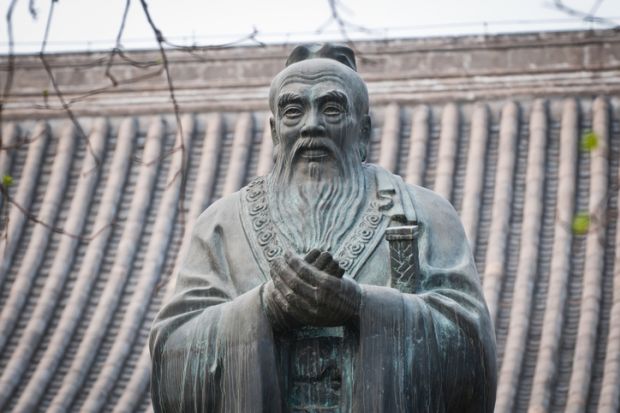The Trump administration is piling more political pressure on the Confucius Institutes by ordering them to register as foreign missions.
The order, announced by the US State Department, gives the government formal authority to demand a series of regular disclosures by the Chinese-sponsored educational partnerships operating in the country, in such areas as staff lists and property holdings.
“This designation is long overdue,” David Stilwell, the assistant secretary of state for East Asian and Pacific affairs, said in a briefing.
The order is part of a long-running series of administration actions against China generally and the Confucius Institutes in particular, aimed at disrupting suspected political influence and espionage operations directed by Beijing.
US universities have largely acknowledged the threat as set out by government officials, but they have urged caution against going too far given the great value that American higher education and the nation more broadly realises from Chinese scholars in the US.
The Trump administration action limits itself to the headquarters of the Confucius Institutes in the US and not its operations on individual campuses. As such, it avoids potential concerns about academic freedom, said Andrew Nathan, a professor of Chinese politics at Columbia University.
At the same time, Professor Nathan said, US universities have a responsibility to ensure propaganda-free curricula, especially in contexts where there is wide distrust, such as those involving Confucius Institutes.
“Universities have not done a very good job of doing so, and they ought to,” Professor Nathan said. An important first step, he said, would be for universities to make Confucius Institute contracts fully available for scrutiny by their own faculty.
The Confucius Institutes were seen as low-cost ways for US colleges to provide teaching in Chinese culture and language. But unlike similar operations involving other countries, China’s government ownership model has given conservative critics grounds to attack Confucius Institutes as stealth transmitters of Chinese propaganda.
That has led many US colleges to abandon the partnerships in recent years. Other nations, including India, Canada, the UK and Australia, also have grown more sceptical towards Confucius Institutes.
Still, the conservative National Association of Scholars, which tracks their numbers, counts some 500 Confucius Institutes remaining worldwide, including 65 in the US at hosts that include Stanford University, Tufts University and the University of California, Los Angeles.
Register to continue
Why register?
- Registration is free and only takes a moment
- Once registered, you can read 3 articles a month
- Sign up for our newsletter
Subscribe
Or subscribe for unlimited access to:
- Unlimited access to news, views, insights & reviews
- Digital editions
- Digital access to THE’s university and college rankings analysis
Already registered or a current subscriber? Login






